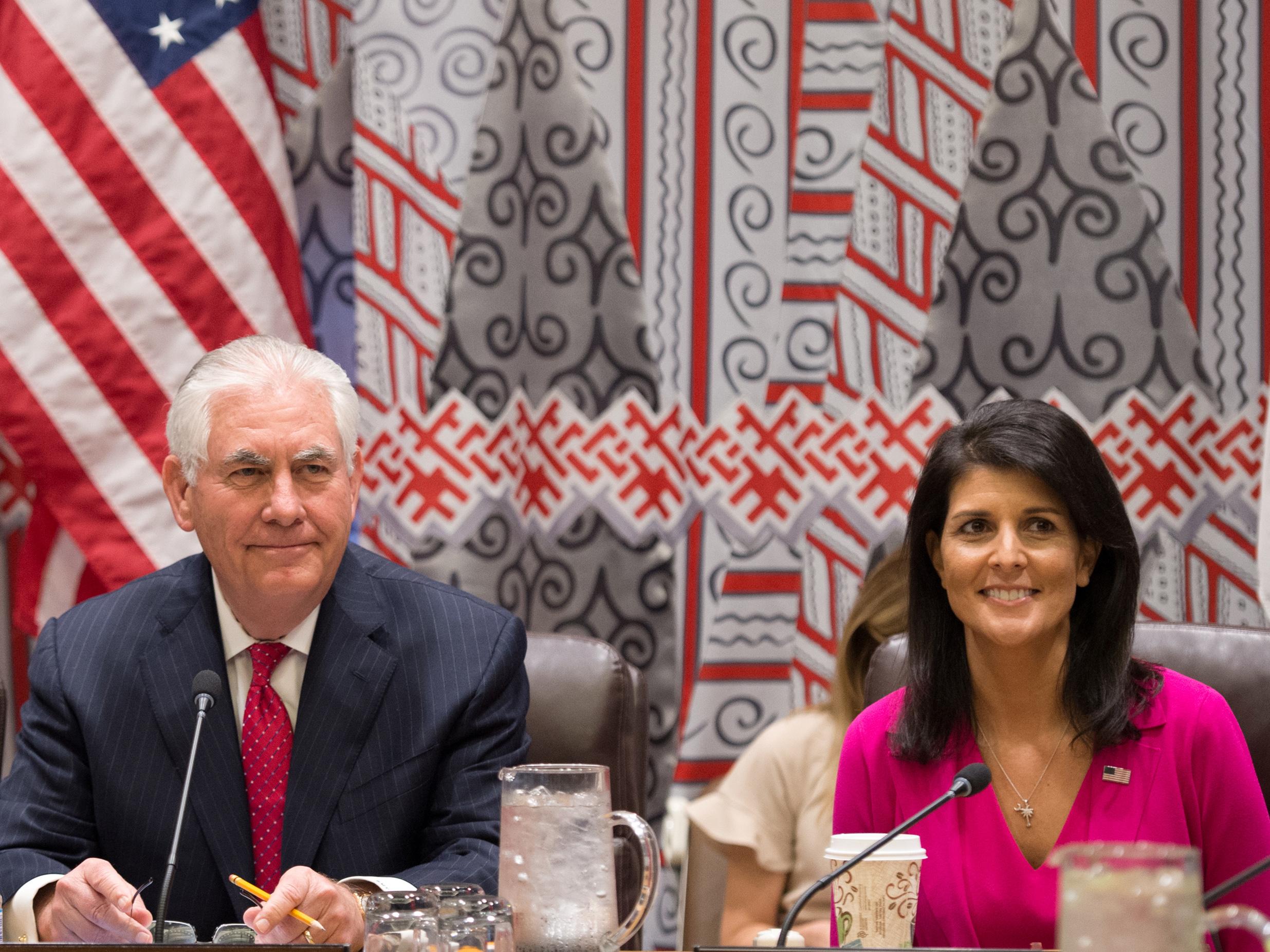US poised to withdraw from UN Human Rights Council unless 'anti-Israel bias' is removed
Ambassador Nikki Haley to address body over raft of reforms demanded by Donald Trump administration, with perceived prejudice against Jerusalem top of the agenda

Your support helps us to tell the story
From reproductive rights to climate change to Big Tech, The Independent is on the ground when the story is developing. Whether it's investigating the financials of Elon Musk's pro-Trump PAC or producing our latest documentary, 'The A Word', which shines a light on the American women fighting for reproductive rights, we know how important it is to parse out the facts from the messaging.
At such a critical moment in US history, we need reporters on the ground. Your donation allows us to keep sending journalists to speak to both sides of the story.
The Independent is trusted by Americans across the entire political spectrum. And unlike many other quality news outlets, we choose not to lock Americans out of our reporting and analysis with paywalls. We believe quality journalism should be available to everyone, paid for by those who can afford it.
Your support makes all the difference.The United States is expected to signal that it might withdraw from the United Nations Human Rights Council unless reforms are ushered in including the removal of what it sees as an “anti-Israel bias”, diplomats and activists said.
US Ambassador to the UN Nikki Haley, who holds cabinet rank in President Donald Trump's administration, said last week Washington would decide on whether to withdraw from the Council after its three-week session in Geneva ends this month.
Under Trump, Washington has broken with decades of US foreign policy by turning away from multi-lateralism. His decision to withdraw from the Paris climate agreement last week drew criticism from governments around the world.
The Council's critical stance of Israel has been a major sticking point for its ally the United States. Washington boycotted the body for three years under President George W. Bush before rejoining under Barack Obama in 2009.
Haley, writing in the Washington Post at the weekend, called for the Council to “end its practice of wrongly singling out Israel for criticism.”
The possibility of a US withdrawal has raised alarm bells among Western allies and activists.
Eight groups, including Freedom House and the Jacob Blaustein Institute, wrote to Haley in May saying a withdrawal would be counterproductive since it could lead to the Council “unfairly targeting Israel to an even greater degree.”
In the letter, seen by Reuters, the groups also said that during the period of the US boycott, the Council's performance suffered “both with respect to addressing the world's worst violators and with respect to its anti-Israel bias.”
The Council has no powers other than to rebuke governments it deems as violating human rights and to order investigations but plays an important role in international diplomacy.
Israel and the occupied Palestinian territory are a fixed item on the agenda of the 47-member body set up in 2006. Washington, Israel's main ally, often casts the only vote against the Arab-led resolutions.
“When the council passes more than 70 resolutions against Israel, a country with a strong human rights record, and just seven resolutions against Iran, a country with an abysmal human rights record, you know something is seriously wrong,” wrote Haley.
John Fisher, Geneva director of the US-based Human Rights Watch, did not appear to fear an immediate withdrawal.
“Our understanding is that it is going to be a message of engagement and reform,” Fisher told reporters.
However, Fisher said Israel's human rights record did warrant Council scrutiny, but the special focus was “a reasonable concern”.
“It is an anomaly that there is a dedicated agenda item in a way that there isn't for North Korea or Syria or anything else,” he said.
Haley also challenged the membership of Communist Cuba and Venezuela citing rights violations, proposing “competitive voting to keep the worst human rights abusers from obtaining seats”. She made no mention of Egypt or Saudi Arabia, two US allies elected despite quashing dissent.
The US envoy will host a panel on “Human Rights and Democracy in Venezuela” and address the Graduate Institute in Geneva before heading to Israel.
Reuters
Join our commenting forum
Join thought-provoking conversations, follow other Independent readers and see their replies
Comments